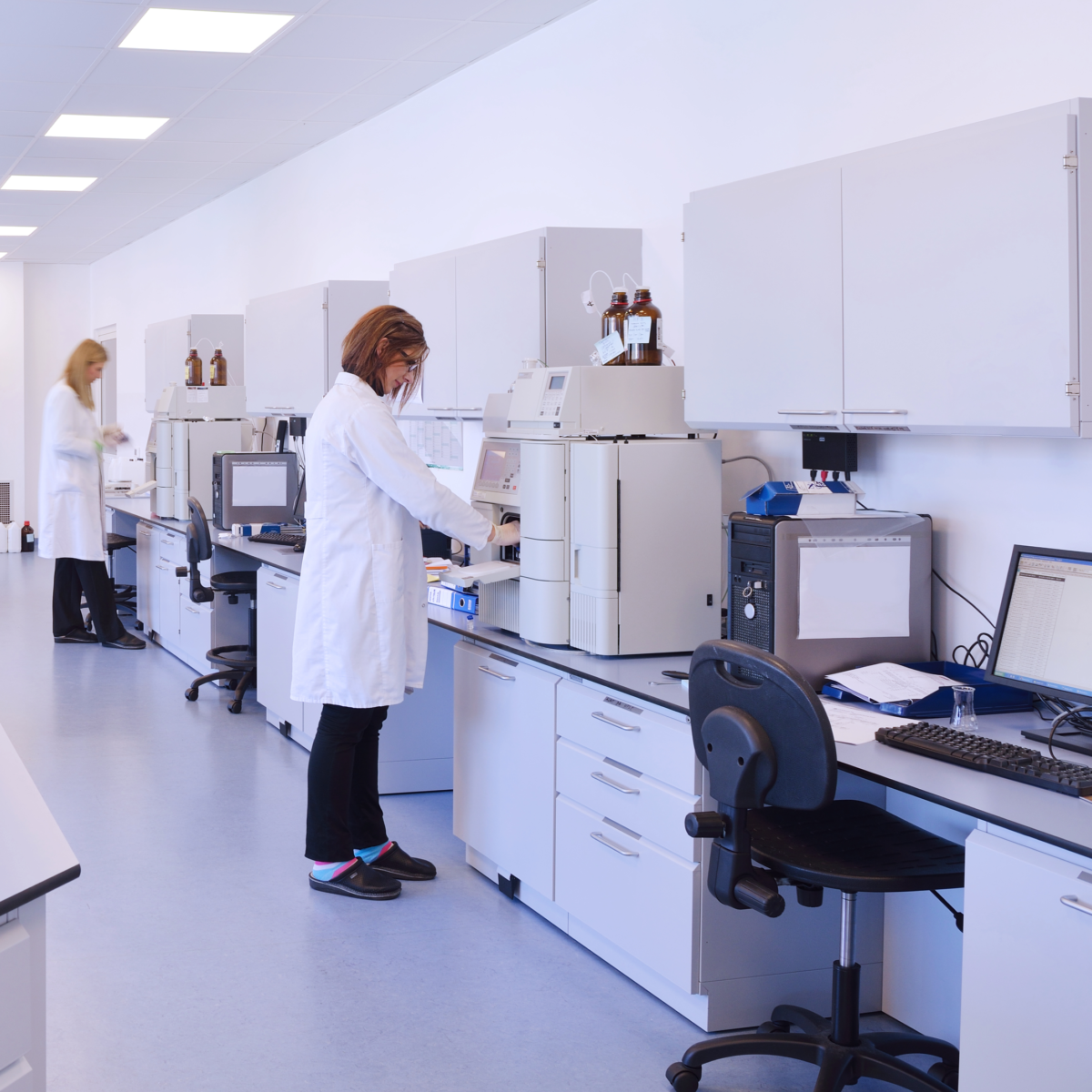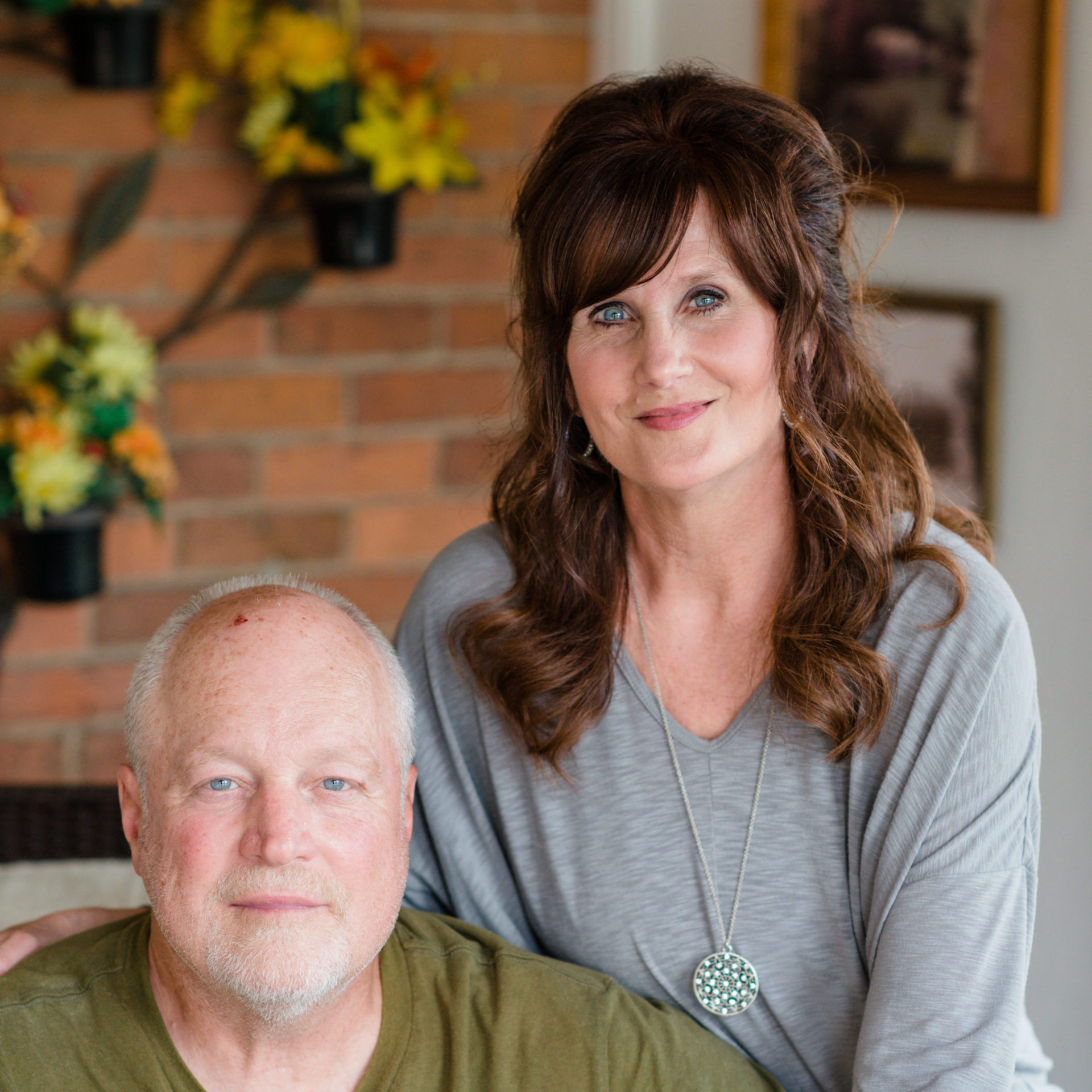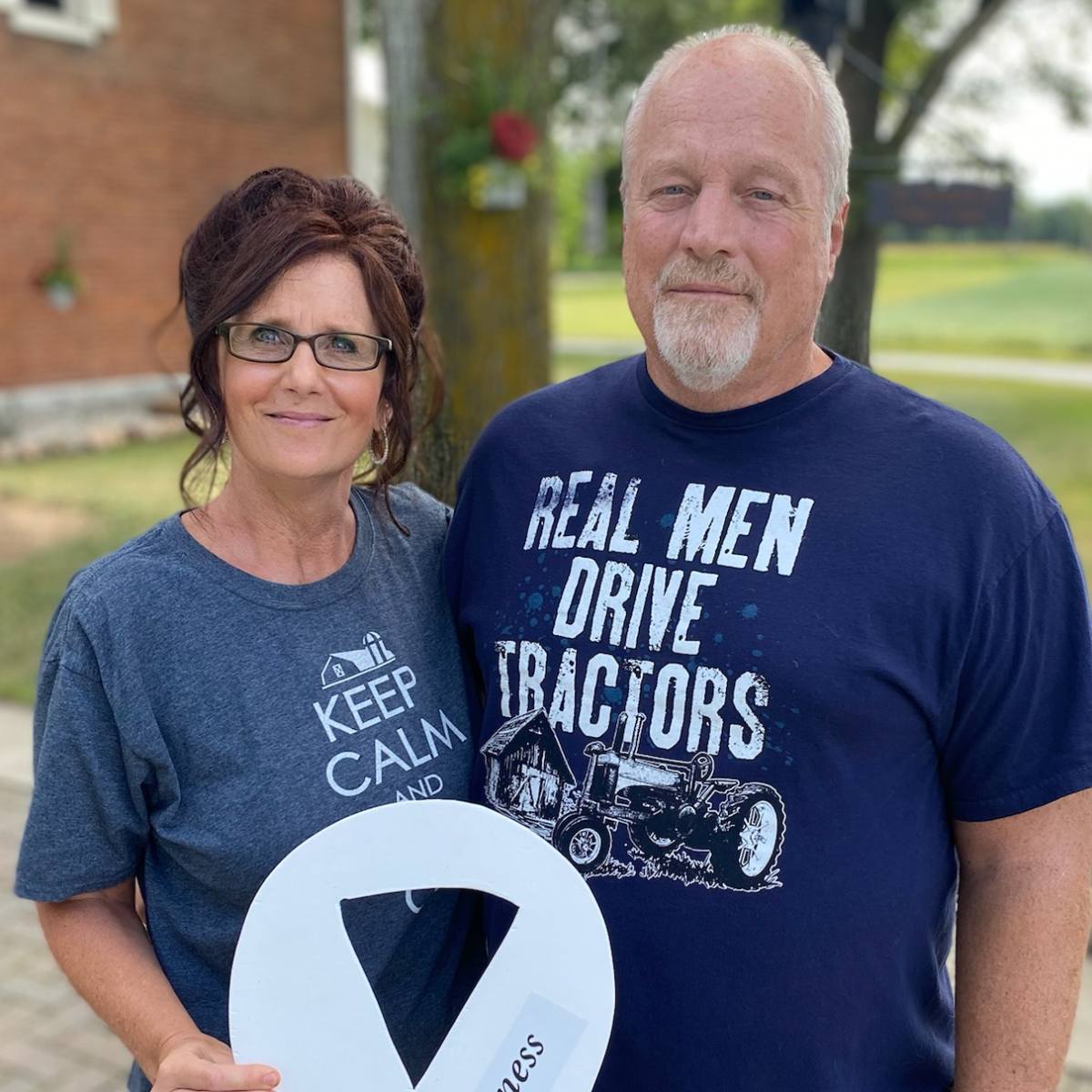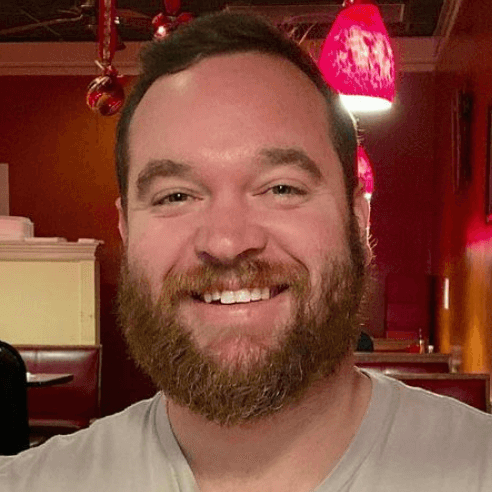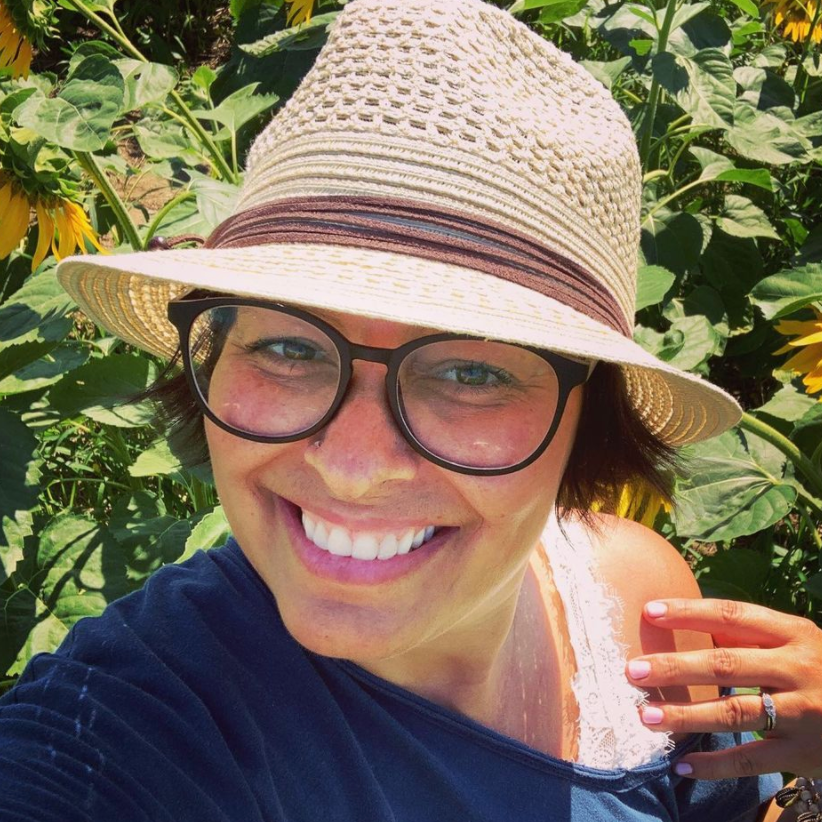Biomarker Testing
You may have heard your care team mention the possibility of biomarker testing when trying to develop a plan of action for diagnosis or a potential diagnosis of cancer. While biomarker testing has been around since the 1950s, it’s not a term you come across often if you aren’t in the medical field.
Biomarker testing is an effective tool for doctors to help identify targeted therapies for driver mutations or issues with the immune system for cancer patients.
In this article, we will help you better understand what biomarker testing is and answer any questions that you may have about biomarker testing. This way you can make an informed decision about what is best for you and your body.
- What is Biomarker Testing?
- Why is Biomarker Testing Useful for Cancer Patients?
- When Should I Consider Biomarker Testing?
- Which Types of Biomarker Testing Should I Be Asking For?
- Are There Different Types of Biomarker Testing?
- How is Biomarker Testing Done?
- Biomarker Testing Patient Stories
- Medical Experts on Biomarkers
What is Biomarker Testing?
Biomarker testing, also known as molecular or genomic testing, is the use of a laboratory test to measure biomarkers found in your bodily fluids or tissue. A biomarker is a biological molecule found in any bodily fluid that may indicate a sign of abnormality as in a disease or a condition.
Doctors are able to use the tissue of a tumor to test for abnormalities in its DNA and levels of specific proteins in the tumor in order to identify what is causing the tumor to grow. In turn, they can then apply targeted therapy that will help remove the cancerous cells without damaging healthy cells.
Why is Biomarker Testing Useful for Cancer Patients?
Biomarker testing is a great tool for cancer patients because it allows your care team to diagnose the type of cancer. This in turn can help your doctor determine the best treatment plan.
According to the National Cancer Institute (NCI), biomarker testing can also be used to identify genes the may lead to cancer or see how your treatment plan is progressing.
“It’s helped us on three different occasions not only with diagnosis, but on each time that he had progression of his cancer, the liquid biopsy was able to say, here’s the mutation, here’s the new mutation, and here’s the direction the clear plot path that you need to take for survival.”
Read more about Rhonda’s success with Biomarkers
When Should I Consider Biomarker Testing?
The National Institutes of Health recommends biomarker testing for all patients with non-small cell lung cancer. Biomarker testing can also be useful for several other types of cancer including melanoma and breast cancer.
Three key times you should consider asking your doctor about biomarker testing are:
- When your doctor suspects cancer and you are getting a biopsy done.
- If you have been diagnosed with cancer but did not get biomarker testing done.
- If lung cancer reoccurs after treatment
Essentially, if you are diagnosed with lung cancer you should discuss the potential for biomarker testing with your doctor.
“I wish I had actually asked for the full biomarker testing to see what their report was and ask questions about it. Cancer runs in my family, but I had done genetic testing. I didn’t understand this was different testing.”
Read More about Terri’s lung cancer story

Which Types of Biomarker Testing Should I Be Asking For?
There are two types of biomarker testing that should be done if you’ve been diagnosed with or your doctor suspects lung cancer:
- Driver Mutations – an error in a gene’s DNA
- Expression of PD-L1 – an immunotherapy biomarker
Let’s dive further into the two types of biomarker testing to understand what they indicate and how they impact your treatment plan.
Driver Mutations
In order to understand driver mutations, it’s important to understand the basics of how genes and DNA work.
DNA makes up genes. When everything is working normally each gene has its proper DNA code which then results in the production of proteins.
A mutation occurs when a gene has an error in its DNA. Mutations are normal and happen often. A single mutation likely won’t cause cancer; however, the accumulation of multiple mutations over time is what typically results in cancer.
Mutations are often sorted into two general categories:
- Somatic (acquired) – The mutation is limited to just the tumor and is not passed to offspring.
- Germline (inherited) – The mutation is present in all cells of the body and can be passed to offspring.
There are several different types of driver mutations that can result in cancer. Some of the most common ones include:
- Activating Mutation – The protein is always active.
- Fusion – The fusion of one gene with another.
- Amplification – More copies of a gene than normal.
- Deletion – Part of or the entire gene is missing.
Research has so far found 20 different driver mutations commonly found in non-small cell lung cancer treatment and small cell lung cancer treatment. Much more research is needed to continue identifying the potential mutations and develop targeted therapies.
Expression of Programmed Death Ligand 1 (PD-L1)
The testing of your PD-L1 levels is what helps identify if you need immunotherapy. According to the National Library of Medicine, a PD-L1 test helps measure the amount of PD-L1 on cancer cells.
This is important because PD-L1 proteins are what prevent your T-cells, otherwise known as immune cells, from attacking the cancer cells. Essentially, the abnormal cancer cells are hiding behind the PD-L1 proteins to stop your body from doing its job.
To learn more about immunotherapy visit our FAQ page.
“If you catch a patient stage one, you can have a greater than 90% chance of curing that patient from lung cancer. So that’s what it’s all about.”
– Dr. Michael Gieske
Read more about Dr. Gieske’s fight for early lung cancer screening.
Are There Different Types of Biomarker Testing?
Yes, there are several different biomarker tests that can be done. The type of biomarkers and test that is performed depends on the type of cancer that you may have.
Some common tests include:
- Single Biomarker Test – Only looking for one single biomarker.
- Multigene Test – Looking at a panel of several different biomarkers.
- Whole-Exome Sequencing – Looking at all of the genes in your cancer.
- Whole-Genome Sequencing – Looking at all of the DNA in your cancer.
- Tumor Mutational Burden Testing – Looking at genetic changes in your cancer to determine if you need immunotherapy.
- Liquid Biopsies – Assessing blood or other bodily fluids for biomarkers.
The type of biomarker that is run depends on your cancer type and what your doctor is trying to learn from the test.
How is Biomarker Testing Done?
An important part of deciding if biomarker testing is right for you may be how the actual test is performed. The test can be done in one of three ways depending on the type of biomarkers that are being tested for:
- If you are having surgery, the surgeon can take a sample of your tumor during the operation.
- They may need to take a biopsy of your tumor if you aren’t having surgery.
- Some biomarker tests can be completed using just a blood draw.
In some instances, you may need to get an additional biopsy done if the cancer is reoccurring, or they didn’t get enough tissue to complete the test.
What Will My Biomarker Test Reveal?
The results of your biomarker test may help identify the best course of treatment by indicating what type of mutation is causing your cancer or if you are a candidate for immunotherapy. If there is an FDA-approved drug to treat your results you may be able to avoid chemotherapy or even potentially surgery.
“Research is going to biomarker testing that’s going towards targeted therapy. That’s the future of cancer care. That’s not just about lung cancer. So as we make it more people more aware of biomarker testing that goes across all cancers, that’s an education that is critical research.”
Read more about Chris Draft’s experience with lung cancer and his efforts to build awareness.
Biomarker Testing Patient Stories
Learn about how biomarkers impact a cancer diagnosis and treatment from real-life patients.
Lung Cancer
Chris Draft
Background: Chris' wife Keasha passed away from stage 4 lung cancer one month after they married. He's been a passionate lung cancer advocate ever since.
Focus: Leading with love, making connections to grow lung cancer community, NFL liaison
Rhonda & Jeff Meckstroth
Background: Jeff was diagnosed with stage 4 lung cancer and given months to live, but his wife, Rhonda, fought for a specialist that led to biomarker testing and better treatment options
Focus: Education of biomarker testing for driver mutations, patient and caregiver self-advocacy
Terri C., Non-Small Cell Lung Cancer, KRAS+, Stage 3A
Symptom: Respiratory problems
Treatments: Chemotherapy (cisplatin & pemetrexed), surgery (lobectomy), microwave ablation, radiation (SBRT)
Stephen H., Non-Small Cell Lung Cancer, ALK+, Stage 4 (Metastatic)
Symptoms: Shortness of breath, jabbing pain while talking, wheezing at night
Treatments: Targeted therapy (alectinib), stereotactic body radiation therapy (SBRT)
Stephanie W., Non-Small Cell Lung Cancer, ALK+, Stage 2B
Symptoms: Persistent cough, wheezing
Treatments: Surgery (bilobectomy), chemotherapy, targeted therapy
Breast Cancer
Shari S., IDC, Stage 4, Triple-Positive
Symptom: Lump in the breast
Treatments: Surgery, chemotherapy, radiation
Symptom: Lump in the mouth
Treatments: Surgery (lumpectomy), chemotherapy, radiation
Samantha L., IDC, Stage 4, ER+ PR+ HER2+
Symptom: Lump in the breast
Treatments: Chemotherapy, surgeries, radiation, hormone therapy, targeted therapy
Renee N., IDC, Stage 3-4, HER2+
Symptom: Lump in the breast
Treatments: Chemotherapy, surgery (bilateral mastectomy), radiation
Leukemia
Mary Clare B., Acute Myeloid Leukemia (AML)
Symptoms: Extreme fatigue, upset stomach, bad & persistent headaches
Treatments: Chemotherapy, radiation, bone marrow transplants
Medical Experts on Biomarkers
No post found
